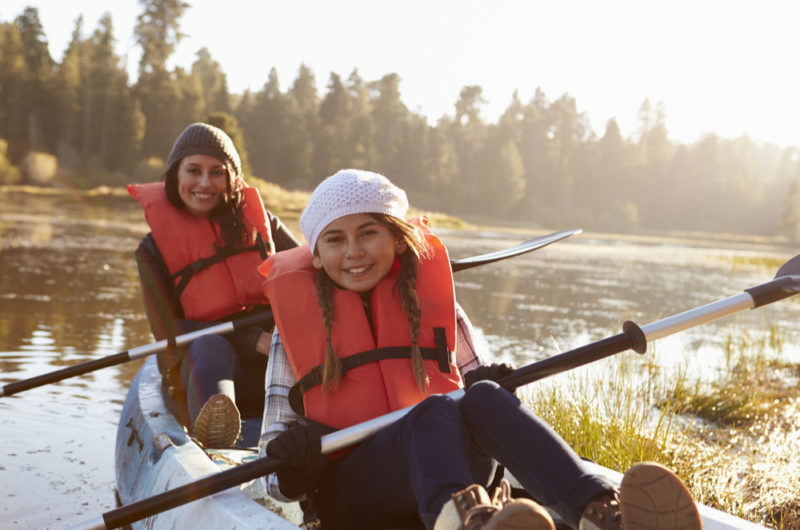![]()
During National Safe Boating Week, May 20-26, Nebraska Game and Parks reminds boaters to brush up on safety rules in preparation for peak boating season.
Follow these 10 tips reduce the risk of incidents and help ensure a safe and enjoyable day on the water.

Take a boater safety course — Though it’s only a legal requirement for those born after Dec. 31, 1985, consider completing the Nebraska boating safety course to learn the top things you need to know about navigating Nebraska waters, what to do in an emergency and more. Find an in-person or online class at OutdoorNebraska.gov; search for “boater education.”
Check equipment — Before you launch, ensure your boat or kayak is in good running condition and all essential equipment is present, including a life jacket for every person on board. Paddlers of kayaks or canoes also should physically inspect their planned take-out point to make sure it is accessible.
Tell someone your plans — Before leaving home, let someone know where you are going and when you expect to return. Consider carrying a cellphone in a waterproof pouch, as well, in case an emergency occurs.
Wear a life jacket — Make your life jacket a statement piece and wear it, as it does no good stowed away if an emergency occurs. Children under age 13, those using personal watercraft and those being towed on skis or similar device must wear a U.S. Coast Guard-approved personal flotation device; it’s required by the law.
Be wary of surroundings — According to the National Safe Boating Council, nearly a quarter of all reported boating accidents in 2021 were caused by operator inattention or improper look-out. Pay attention to other boats, personal watercraft, swimmers, stumps and other hazards. Speeds in excess of 5 mph are prohibited if within 30 yards of any other vessel, swimming area or dock. If padding a kayak or canoe, be aware of possible debris below the surface or under bridges.
Have all required safety equipment — Life jackets, throw cushions, fire extinguishers and bailing devices are required on most boats. An engine-cut-off device or switch also is a good idea.
Avoid alcohol — Nearly one-third of all recreational boating fatalities occur when someone is Boating Under the Influence, a criminal violation enforced in Nebraska. Always designate a sober driver.
Watch the weather — Storms can pop up quickly in Nebraska. Check the weather in advance and monitor it during the day, if necessary.
Avoid hypothermia — Even though temperatures are rising, the water still can be cold. Hypothermia is caused by exposure to cold weather or water. Take caution to prevent hypothermia.
Keep it legal — Make sure you’ve registered your boat and, if a nonresident, purchased an Aquatic Invasive Species stamp at OutdoorNebraska.gov. Also remember anyone operating a motorboat or personal watercraft in Nebraska must be at least 14 years of age. Learn more about Nebraska’s boating regulations at OutdoorNebraska.gov; search “Go boating.”
National Safe Boating Week is the annual kick-off of the Safe Boating Campaign, a global awareness effort that encourages boaters to make the most of their boating adventure by being responsible.
